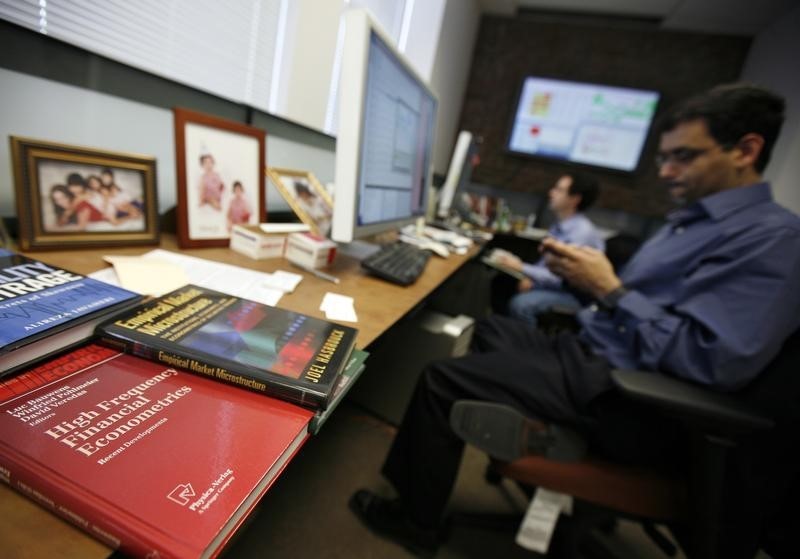By Herbert Lash
NEW YORK (Reuters) - Manoj Narang, an outspoken proponent of high-frequency trading and one of the industry's few visible faces, is leaving Tradeworx, a firm he founded in 1999 that only became active in high-speed trading during the financial crisis in 2008.
Narang declined to spell out why he was leaving Red Bank, New Jersey-based Tradeworx, but said, "I had a few differences with the board about the direction of the company."
Narang said there were no losses or expected losses at closely held Tradeworx, which he said has a bright future and where he remains a shareholder. Tradeworx accounts for about 5 to 6 percent of daily U.S. equity market volume, sources say.
There was no immediate response from Tradeworx management.
Narang has not decided on a future venture, but he said he is likely to remain in the financial services industry, is talking to people and is looking closely at the options market.
"I have a whole lot of ideas that I'm excited about that I've been wanting to pursue, so now is the time to figure out which of those ideas I'd like to pursue," Narang told Reuters.
"I'm particularly interested in options trading, I have been for some time, that's something Tradeworx doesn't do. Many of my ideas are in that space," said Narang, 45, who has degrees in computer science and mathematics from the Massachusetts Institute of Technology.
Narang has been one of the few industry leaders to openly discuss high-frequency trading because in his view it has "tremendous" social utility. He spoke out at industry conferences as "it's generally not a good situation when the public and policy makers are misinformed."
In April, soon after the release of Michael Lewis' tale of alleged rigged markets, "Flash Boys: A Wall Street Revolt," Narang clashed with Lewis on TV and called the book "fiction that masquerades as journalistic exposé."
Narang railed at what he called Lewis' Orwellian vision of Wall Street, saying he had mistaken the good guys - the upstart entrepreneurs who disrupted Wall Street by reducing trading costs for the little guy through savvy use of computers - while hailing fat cats and their status quo as good.
Surprisingly, Tradeworx only entered high-frequency trading in late 2008 after the collapse of Lehman Brothers when there already were a number of established fast algorithmic traders.
"We were late to the game but it was a good time to get into the business as volatility was sky high so you didn't have to be world class to make money at that time. But we became world class by re-investing our profits over the years."
A Tradeworx affiliate, Thesys Technologies, provides a data feed to the Securities and Exchange Commission for its Market Information Data Analytics System (MIDAS), which is used by regulators to better analyze trading.
